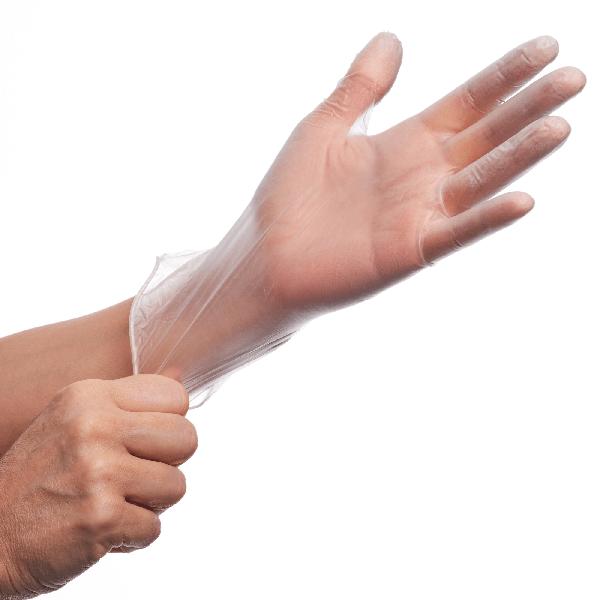A Comprehensive Understanding Of Vinyl Gloves And What Makes Them Bad For Food Authority Gloves are commonly used all around the world by various authorities. Everyone needs to have gloves around their house to do various tasks. However, particular kinds of gloves are designed to do the dedicated job. For instance, there are specially designed gloves for surgery. However, Vinyl Gloves are the most commonly used gloves among these special gloves worldwide. Yet, they are not very well known. Therefore, we bring you a comprehensive outline of disposable vinyl gloves. What are Vinyl Gloves?Vinyl gloves are composed of synthetic polymers; however, typically, they are less dense and, consequently, less durable. Vinyl is excellent for non-hazardous applications, but it doesn't have the flexibility of Nitrile.
Vinyl gloves are a mixture of plasticizers, synthetic rubber, and other additives known as PVC. They were developed to be an excellent alternative for those who suffer from allergies to latex. Vinyl gloves are commonly employed for handling food and food preparation and healthcare applications with low-risk and light cleaning-up tasks and repetitive manufacturing or assembly line jobs. These gloves are often employed in non-hazardous and low-risk environments because they offer a low degree of protection. They are great in the food and drink industry.
Some of the Advantage and Disadvantages Of Vinyl GlovesHere are the advantages and disadvantages of disposable vinyl gloves. Advantages
Disadvantages
What makes Vinyl gloves a food safety hazard? Many food authorities have stopped using vinyl gloves in light of growing scientific evidence. They are sometimes referred to as PVC gloves and have excessive chlorine. PVC is a well-known synthetic polymer. The rigid version of PVC is used to create pipes.
China stopped making gloves in 2012 due to severe pollution. The factories have been reopened as long as they meet new standards for pollution. Japan prohibited its use in foodservice operations in 2001 due to documented adverse impacts on well-being. Within the United States, many companies have changed from vinyl gloves to Nitrile due to the same health concerns.
Additionally, the European Union in 2008 banned the use in food-safety products of at minimum one component used in the production of vinyl gloves because of the possibility that the chemical may get into food products and then be consumed. Sweden introduced limitations regarding PVC use in 1995 and is working to stop disposable vinyl gloves. There are reasons to believe that vinyl gloves produce dioxins harmful to a human stomach. Moreover, they also contain phthalates, another harmful chemical found in these gloves. Therefore, these gloves are no longer promoted for the food business. However, many other uses of these gloves prolong to this day.
|
